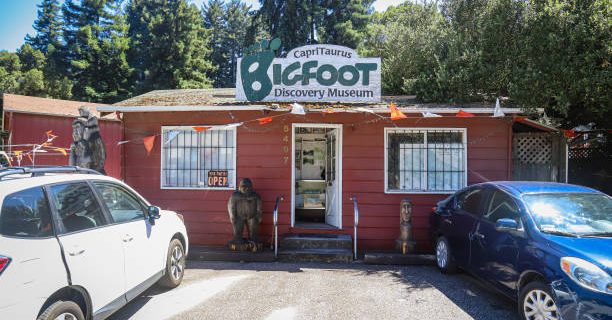
By
Keith Edmunds
January 2025
Print Version
What you need to know
Bigfoot, one of North America’s most enduring legends, is widely recognized in Indigenous and popular cultures. Also known as Sasquatch, this giant, ape-like creature that walks on two legs has been seen by witnesses across North America. Other than these eyewitness accounts, the available evidence for the existence of this creature is limited to sound recordings, footprint casts, photos, and films, none of which has been deemed conclusive proof by either the scientific establishment or the general public. Although this evidence has prompted some study, and sociological consideration has been given to those that seek such evidence, very little consideration has been given to the flow of money around the idea of Bigfoot. Serving a niche interest, this industry is very entrepreneurially driven, which allows for a unique perspective on entrepreneurial passion.
Why this research is important
Entrepreneurial passion was originally defined as “consciously accessible, intense positive feelings experienced by engagement in entrepreneurial activities associated with roles that are meaningful and salient to the self-identity of the entrepreneur” (Cardon et al, 2009, p. 517). Based on this definition, an overwhelming amount of research on entrepreneurial passion has focused on activities that embody this passion. More recent scholarship has suggested that the object of such passion may not necessarily be on entrepreneurial activities, but something else entirely. An examination of the Bigfoot industry provides a deeper understanding of entrepreneurial passion when the object of that passion is instead an object or, perhaps, a more abstract concept.
How this research was conducted
As there is little academic research on entrepreneurial passion other than on activities and none on the business of Bigfoot, this research project is largely exploratory. A broad understanding of the economic activities related to Bigfoot was established from existing media coverage, beginning from the earliest post-colonial business endeavours related to it. Current streams of economic activities were determined, and key informants within each of these areas were interviewed.
What the researcher found
Although very few people—no more than a dozen—make their living solely from Bigfoot-related business activities, a great many people are engaged in entrepreneurial activity in the industry. While there is a great deal of money associated with Bigfoot business in the aggregate, there is often very little for any one business venture. The entrepreneurial drive, therefore, is likely to be related to something other than a passion for the business activity, suggesting that passion for the underlying concept—in this case, Bigfoot—is a significant motivating factor.
How this research can be used
This research has a number of implications, the two most important of which are:
1. A contribution to the understanding of entrepreneurial motivation, particularly in regard to how individual passions contribute to small business start-ups. As small businesses make up nearly 98% of all businesses in Canada, employing almost 47% of all private sector employees, they are an important contributor to the Canadian economy. New businesses are required to replace those disappearing, and entrepreneurs are responsible for establishing them.
2. By examining the industry of Bigfoot, an understanding of how specialized interests begin to bleed out from niche markets into the broader marketplace. Lessons from this case may prove valuable to entrepreneurs in other bounded industries seeking to broaden their market.
Acknowledgements
I would like to thank everyone who generously shared their time and knowledge of the Bigfoot industry.
About the Researcher
Keywords
- Bigfoot
- entrepreneurial passion
- entrepreneurship
Editor: Christiane Ramsey
Read more BU Research
Research at Brandon University follows comprehensive policies designed to safeguard ethics, to ensure academic integrity, to protect human and animal welfare and to prevent conflicts of interest.
